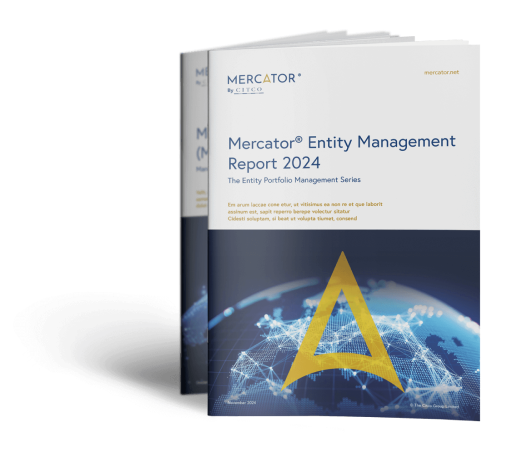The information contained in this document is marketing material and for informational purposes only. The information contained in this document is presented without any warranty or representation as to its accuracy or completeness and all implied representations or warranties of any kind are hereby disclaimed. Recipients of this document, whether clients or otherwise, should not act or refrain from acting on the basis of any information included in this document without seeking appropriate professional advice. The provision of the information contained in this document does not establish any express or implied duty or obligation between Citco and any recipient and neither Citco nor any of its shareholders, members, directors, principals or personnel shall be responsible or liable for results arising from the use or reliance of the information contained in this document including, without limitation, any loss (whether direct, indirect, in contract, tort or otherwise) arising from any decision made or action taken by any party in reliance upon the information contained in this document. © The Citco Group Limited, December 2024.
Press Release: Europe the cheapest region for entity management in 2023
Europe retained the top spot as the cheapest region for multinationals to operate entities in this year amid greater disparity globally, with the digitalization drive playing out at different speeds around the world.
According to data compiled to Entity Portfolio Management (EPM) leader Mercator® by Citco (Mercator) in its annual Mercator Entity Management Report 2023, combined global average costs for multinationals to complete entity-related activities reduced by 4% in 2023.
An uptick in the use of digital tools drove greater cost efficiency in some regions, easing the processes of entity management, while the growth of the legal and company secretarial support sector also played a part as a range of providers helped to reduce costs.
For the second year running, Europe ranked as the lowest cost region for multinationals to operate, driven by the ongoing implementation of the EU Digitalization Directive and a highly competitive legal service market.
In comparison to Europe, the Middle East and Africa (MEA) and Latin America (LATAM) are most expensive, with many jurisdictions within those regions still requiring wet-ink signatures and multiple steps for notarization, translation and legalization of foreign documents.
The data – sourced directly from Mercator’s EPM technology platform, Entica® – also showed North America (NA) is the fastest region, benefiting from widespread adoption of e-signatures and electronic filings, with average time to complete tasks decreasing by 14% in 2023.
However, all other regions saw either an increase or no discernible change in time, with the efficiency gap widening between those jurisdictions embracing digitalization and those jurisdictions still relying on traditional legalization methods, physical filings and in person meetings. This is most pronounced in Asia-Pacific (APAC), which has some of the most efficient processes for multinationals as well as some of the most complex. This disparity results in global average time increasing by 48%.
Ranked per individual jurisdiction, Malaysia emerges as the most favorable location overall in which to base entities in 2023 – based on the overall cost and time involved in managing entities – followed by Singapore and Australia. In contrast, Taiwan, Vietnam and Norway are the lowest ranked.
Kariem Abdellatif, Head of Mercator comments:
“Overall, we continue to see the digitalization drive revolutionizing how multinationals manage and maintain their global portfolio of entities and 2023 has seen more jurisdictions across the world embrace digital tools to streamline processes and increase efficiency.
“What is becoming increasingly clear, however, is that the gap is widening between Global Financial Centres with streamlined, tech driven solutions – such as Singapore, the United Kingdom and the United States – and those jurisdictions still relying on traditional in-person processes. In those jurisdictions, the added complexity not only creates administrative burdens for in-house teams, but also costs multinationals more time and money.
“Of course, the purpose of this report is not to advise multinational companies on where to base entities or subsidiaries – this is obviously dictated by necessity – but to set expectations and provide foresight on the relative cost and time it takes to complete key activities to keep entities in compliance around the world.”

